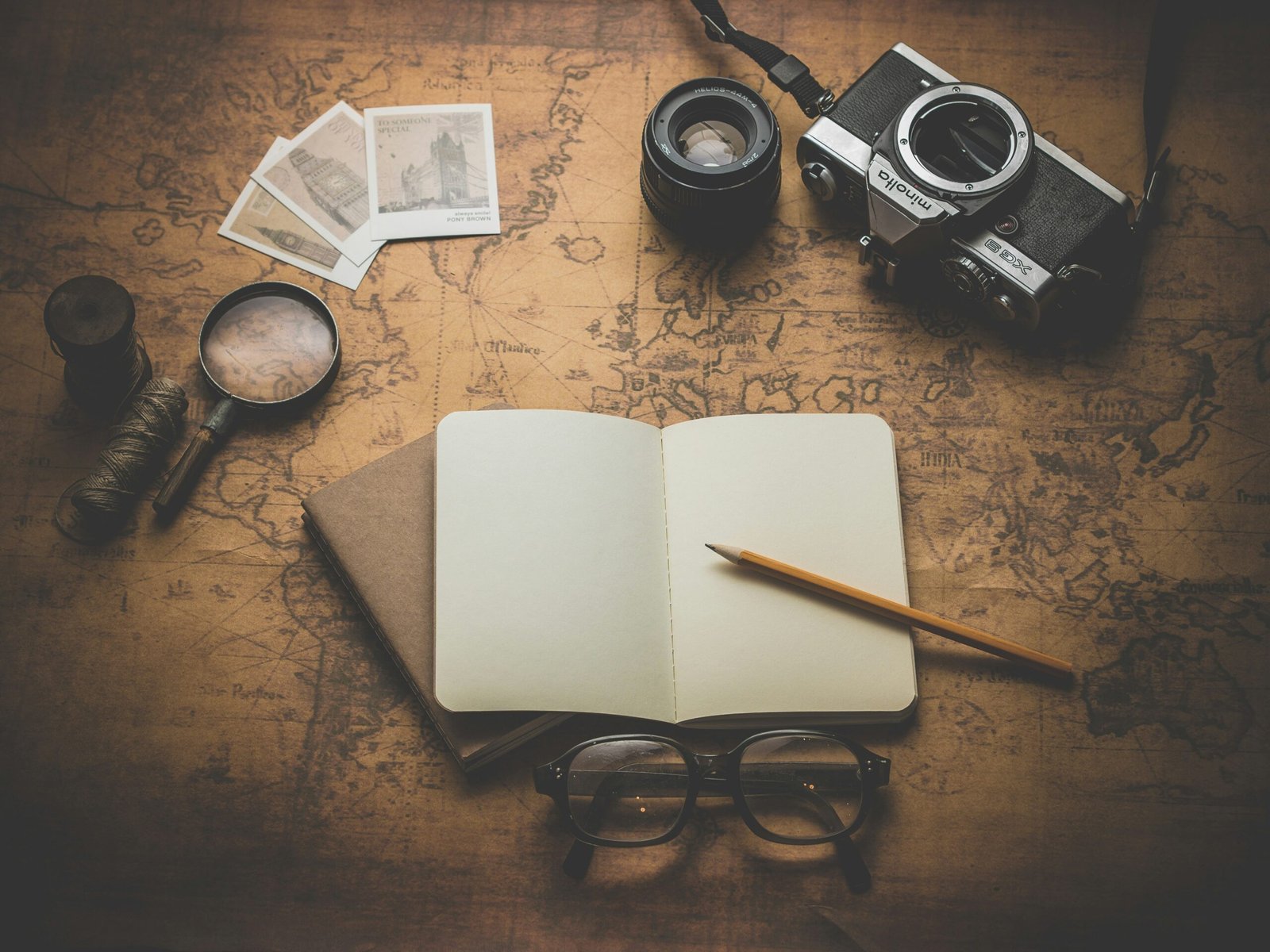Introduction to the Fascination of Travel
Travel has an enduring, universal appeal that captivates the human spirit. It offers a unique opportunity to break free from the routines of daily life and immerse oneself in diverse environments. The act of traveling ignites curiosity and provides a sense of adventure that invigorates the soul. Exploring new places and encountering different cultures enriches our understanding of the world and our place within it.
The allure of travel lies in its ability to offer new experiences and perspectives. Whether it’s wandering through the narrow streets of a historic city, marveling at natural wonders, or engaging with local traditions, each journey presents an array of discoveries that are both enlightening and exhilarating. These experiences broaden our horizons, fostering a deeper appreciation for the diversity and beauty of our planet.
Moreover, travel provides an invaluable escape from the monotony of everyday life. It allows us to step outside our comfort zones, challenge our assumptions, and embrace the unknown. This break from routine can be revitalizing, offering a fresh perspective and renewed energy. The excitement of planning a trip, the anticipation of the journey, and the memories created along the way contribute to the overall fascination of travel.
In essence, the timeless allure of travel is rooted in its promise of discovery and adventure. It connects us to the larger world, offering a wealth of experiences that enrich our lives and shape our identities. By venturing beyond our familiar surroundings, we open ourselves to new possibilities and perspectives, making travel an endlessly fascinating endeavor.
Cultural Exploration and Understanding
Traveling offers unique opportunities to dive into the rich tapestry of diverse cultures around the world. It opens the door to experiencing different traditions, languages, foods, and lifestyles that one might never encounter within the confines of their own environment. This cultural exploration is not merely a passive observation but an active engagement that enriches one’s perspective and broadens understanding.
One of the most profound aspects of travel is the ability to witness and partake in various cultural festivals. For example, the vibrant celebration of Diwali in India, known as the Festival of Lights, provides a spectacle of colors, lights, and communal festivities that symbolize the victory of light over darkness. Similarly, the Rio Carnival in Brazil showcases exuberant parades, samba music, and elaborate costumes, reflecting the joyous spirit and cultural heritage of the Brazilian people.
Language learning is another significant facet of cultural exploration. Engaging with locals in their native tongue, even at a basic level, fosters a deeper connection and appreciation for their way of life. It also offers practical insights into the nuances and expressions that shape a culture’s identity. For instance, the Japanese concept of “omotenashi” encapsulates the spirit of selfless hospitality, a value deeply ingrained in Japanese society and language.
Food, often regarded as a gateway to culture, plays a pivotal role in the travel experience. Sampling diverse cuisines can be a journey in itself. From savoring the rich, aromatic spices of Moroccan tagine to enjoying the fresh, delicate flavors of Italian pasta, each dish tells a story of the region’s history, resources, and culinary traditions. Culinary tours and cooking classes allow travelers to not only taste but also understand the cultural significance behind these gastronomic delights.
Moreover, visiting significant cultural sites offers tangible connections to the past and present. Landmarks such as the ancient ruins of Machu Picchu in Peru or the historic temples of Kyoto in Japan provide insights into the civilizations that shaped these regions. These experiences enable travelers to appreciate the architectural marvels, historical narratives, and cultural legacies that continue to influence modern societies.
In essence, traveling is a gateway to cultural exploration and understanding. It enhances one’s worldview, promotes empathy, and fosters a greater appreciation for the multifaceted nature of human existence. By immersing oneself in different cultures, one gains invaluable experiences and memories that transcend geographical boundaries.
Personal Growth and Development
Traveling is often regarded as a transformative experience, fostering significant personal growth and development. When individuals venture beyond their familiar environments, they encounter diverse cultures, languages, and customs. This exposure necessitates adaptability, a critical skill in both personal and professional realms. As travelers navigate new terrains and unfamiliar situations, they learn to adjust their expectations and behaviors, becoming more flexible and resourceful.
Another key aspect of personal development through travel is enhanced problem-solving skills. Travelers frequently face unexpected challenges, such as navigating public transportation in a foreign city, overcoming language barriers, or managing unforeseen travel delays. These experiences compel individuals to think on their feet and devise creative solutions, thereby sharpening their problem-solving abilities.
Furthermore, travel cultivates open-mindedness. Experiencing different ways of life broadens one’s perspective, challenging preconceived notions and fostering a deeper understanding of the world. This broadened worldview encourages empathy and tolerance, essential traits in an increasingly interconnected global society. As Mark Twain aptly noted, “Travel is fatal to prejudice, bigotry, and narrow-mindedness.”
Personal anecdotes from seasoned travelers often highlight these transformative experiences. For instance, Jane, a solo traveler who spent a year exploring Southeast Asia, recounts how navigating the bustling streets of Bangkok and the serene landscapes of Bali significantly enhanced her confidence and independence. Similarly, John, an avid backpacker, shares how his journey through the Andes Mountains not only tested his physical endurance but also deepened his appreciation for nature and local traditions.
Through these various encounters and experiences, travelers develop a multitude of skills and traits that contribute to their personal growth. The journey itself becomes a classroom, offering invaluable lessons that extend far beyond the confines of traditional education. Thus, travel serves as a powerful catalyst for personal development, enriching lives in profound and lasting ways.
Adventure and New Experiences
Traveling offers an unparalleled thrill of adventure that captivates the hearts of many. The excitement begins the moment one steps out of their comfort zone, setting the stage for a myriad of new experiences. The allure of travel lies in the opportunity to engage in a diverse array of adventurous activities, each promising a unique blend of exhilaration and discovery.
For instance, hiking through lush forests or scaling towering mountains provides a physical challenge that is equally matched by the breathtaking vistas awaiting at the summit. The sense of accomplishment and the panoramic views serve as a testament to the rewards of pushing personal boundaries. Similarly, scuba diving opens up an entirely different world beneath the ocean’s surface, where vibrant coral reefs and exotic marine life create an underwater paradise begging to be explored.
Beyond natural landscapes, travel also offers the chance to delve into human history by exploring ancient ruins. Walking through the remnants of civilizations long past, such as the enigmatic temples of Angkor Wat or the majestic ruins of Machu Picchu, allows travelers to connect with the stories and cultures that shaped our world. These historical sites evoke a sense of wonder and curiosity, encouraging visitors to ponder the mysteries and achievements of ancient peoples.
The adventure of travel extends beyond physical activities and historical exploration. It also encompasses the thrill of trying new things, whether it’s tasting unfamiliar cuisines, learning a new language, or participating in local traditions. Each new experience broadens one’s perspective and fosters a deeper appreciation for the diverse tapestry of human life.
Ultimately, the thrill of adventure and the joy of new experiences make traveling an endlessly fascinating pursuit. The blend of physical challenges, historical exploration, and cultural immersion ensures that every journey is a unique and memorable adventure, leaving travelers with stories to share and memories to cherish.
Building Connections and Friendships
Traveling offers a unique platform for forming meaningful connections and friendships that transcend cultural and geographical boundaries. The journey often brings together individuals from diverse backgrounds, fostering an environment where friendships can flourish. One of the most rewarding aspects of travel is the opportunity to meet locals who can provide an authentic glimpse into their way of life. Engaging with residents allows travelers to gain a deeper understanding of the local culture, traditions, and values, enriching their overall experience.
Additionally, encountering fellow travelers can lead to the sharing of stories and experiences, creating a sense of camaraderie. Hostels, group tours, and community events often serve as melting pots where travelers can bond over common interests and shared adventures. These interactions can result in lasting friendships that extend beyond the trip itself, offering a network of global connections.
For instance, participating in a cooking class in Italy not only teaches the art of Italian cuisine but also provides a social setting where participants can connect with locals and other tourists. Similarly, joining a hiking group in the mountains of Peru can lead to the formation of strong bonds as individuals work together to overcome physical challenges. These shared experiences often become cherished memories, strengthening the relationships formed.
Moreover, travel connections can open doors to future opportunities. A friendship made while volunteering at a community project in Africa may lead to collaborative efforts on similar initiatives worldwide. The exchange of ideas and perspectives during such encounters can inspire personal growth and broaden one’s horizons.
Ultimately, the connections and friendships formed during travel contribute significantly to the overall richness of the experience. They provide a sense of belonging and community, making each journey not just a chance to see new places, but also an opportunity to forge lasting human connections that enhance the travel experience.
Learning and Knowledge Acquisition
Traveling is not just a leisure activity; it is a profound educational experience that broadens one’s horizons. The historical, geographical, and environmental knowledge gained through travel is invaluable. When visiting different parts of the world, travelers have the opportunity to explore museums, historical sites, and natural wonders, each offering a unique learning experience.
Museums serve as repositories of culture and history, providing insights into the civilizations and events that shaped the world. For instance, the Louvre in Paris houses artifacts that span from ancient Egypt to modern times, offering a comprehensive view of human history. Similarly, the Smithsonian Institution in Washington, D.C. encompasses various museums that cover everything from natural history to space exploration, making it a treasure trove of knowledge.
Historical sites are another critical component of educational travel. Places like the Great Wall of China, the Roman Colosseum, and the Pyramids of Giza are not just tourist attractions; they are physical remnants of human ingenuity and perseverance. Visiting these sites allows travelers to step back in time and gain a deeper understanding of historical contexts and the people who lived through them.
Natural wonders also play a significant role in enhancing knowledge. Destinations like the Grand Canyon, the Great Barrier Reef, and the Amazon Rainforest offer unparalleled opportunities to learn about geology, marine biology, and biodiversity. These natural sites are living classrooms where travelers can observe and study the intricate workings of the environment.
In essence, travel transforms the world into a vast classroom, offering endless opportunities for learning and knowledge acquisition. Whether it’s through the halls of a museum, the ruins of an ancient civilization, or the breathtaking beauty of a natural wonder, the educational benefits of travel are immense, making it an enriching experience for anyone eager to learn.
Health and Well-being Benefits
Traveling offers a multitude of health benefits that can enhance both physical and mental well-being. Engaging in various activities while traveling, such as hiking, swimming, and walking, can significantly contribute to physical fitness. Exploring new destinations often requires physical exertion, which helps improve cardiovascular health, build muscle strength, and increase overall endurance. These physical activities also encourage higher levels of activity, countering sedentary lifestyles that are common in daily routines.
Beyond the physical advantages, travel presents numerous mental health benefits. One of the most notable is the reduction of stress. The change of environment and break from routine can provide a mental reset, offering a reprieve from the pressures of daily life. Exposure to new cultures and experiences can stimulate the mind, fostering creativity and a sense of adventure. This stimulation is beneficial for mental health, as it can lead to increased happiness and a more positive outlook on life.
Moreover, traveling can enhance overall well-being by promoting personal growth and self-discovery. Encountering new situations and overcoming challenges while on the road can build confidence and resilience. The sense of accomplishment from successfully navigating a foreign city or learning a new language can boost self-esteem. Additionally, travel often involves social interactions with people from different backgrounds, which can improve social skills and contribute to a sense of connectedness.
In summary, the health and well-being benefits of travel are extensive. Physical activities undertaken during trips can improve fitness levels and combat sedentary habits. Simultaneously, the mental health advantages, such as reduced stress and increased happiness, contribute to an overall sense of well-being. By embracing the opportunities that travel presents, individuals can experience significant improvements in both their physical and mental health, leading to a more balanced and fulfilling life.
Conclusion: Embracing the Joy of Travel
Traveling is more than just a change of scenery; it is a gateway to new experiences and a richer, more fulfilled life. The allure of discovering unfamiliar cultures, tasting diverse cuisines, and witnessing breathtaking landscapes makes traveling inherently fascinating. Each journey offers a unique story, adding layers of depth and perspective to our understanding of the world.
One of the most compelling reasons why traveling is interesting lies in the lasting memories it creates. Whether it’s a spontaneous road trip or a meticulously planned expedition, each adventure leaves an indelible mark. These memories not only bring joy but also serve as a source of inspiration and strength during challenging times. The people we meet and the relationships we forge while traveling often become cherished connections that transcend borders and time.
Moreover, traveling provides numerous benefits that enhance personal growth and well-being. It encourages adaptability, broadens our horizons, and fosters empathy by exposing us to different ways of life. Encountering diverse traditions and practices can challenge preconceived notions, leading to a more open-minded and inclusive outlook. Additionally, the physical and mental stimulation of navigating new environments promotes overall health, reducing stress, and increasing happiness.
As we embrace the joy of travel, we also contribute to a shared global community. By supporting local economies, respecting cultural heritage, and promoting sustainable practices, travelers can play a pivotal role in preserving the beauty and diversity of our planet. Thus, travel not only enriches our own lives but also has the potential to make a positive impact on the world.
Inspired by the myriad benefits and unforgettable experiences that travel offers, it is time to plan your next adventure. Whether near or far, every journey holds the promise of discovery and growth. So, pack your bags, set out with an open heart, and let the world become your classroom and playground. Embrace the transformative power of travel and let it profoundly enhance your life.
FAQs About Traveling
Traveling can be an enriching experience, but it often comes with a myriad of questions, especially for those new to the adventure. Here, we address some of the most frequently asked questions to help you navigate your journeys with ease.
What are the best destinations for first-time travelers?
For first-time travelers, destinations that are easy to navigate and offer a variety of experiences are ideal. Cities like Paris, Rome, and Tokyo provide a blend of history, culture, and modern amenities. They have well-developed tourism infrastructures, making them accessible and accommodating for newcomers. Additionally, English is widely spoken in these cities, which can ease communication barriers.
How can one travel on a budget?
Traveling on a budget is feasible with careful planning and smart choices. Opt for off-peak travel times to benefit from lower airfare and accommodation rates. Utilize budget airlines and explore accommodation options like hostels, guesthouses, or vacation rentals. Eating locally, using public transportation, and taking advantage of free attractions can significantly reduce expenses. Additionally, leveraging travel rewards and credit card points can further stretch your budget.
What are essential items to pack?
Packing efficiently is crucial for a smooth travel experience. Essential items include travel documents, such as passports, visas, and copies of important documents. Pack versatile clothing suitable for the climate and activities planned. Personal hygiene items, a basic first aid kit, and any necessary medications are also important. Don’t forget electronic items like chargers, adapters, and a power bank. Lastly, a small backpack or daypack can be useful for daily excursions.
How can travelers stay safe?
Safety is a top priority when traveling. Research your destination to understand local customs, laws, and potential risks. Keep your valuables secure and avoid displaying wealth. Stay aware of your surroundings and trust your instincts. It’s advisable to have travel insurance for emergencies. Always have a copy of important contact numbers, including local emergency services and your country’s embassy. Staying connected with family or friends and sharing your travel itinerary can also enhance your safety.



